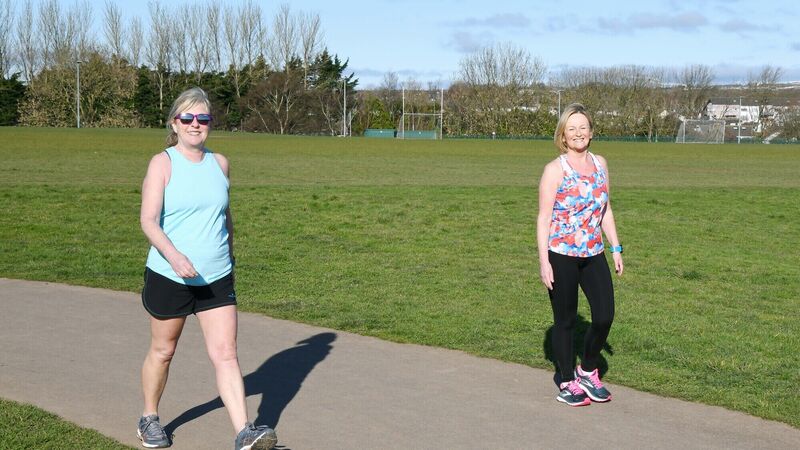Taking lessons from the people who have lived the longest

Sisters Anne Sheehy (left) and Carmen Burns at Tramore Valley Park, Cork. Picture Denis Minihane.
Nobody could accuse sixty-five-year-old Carmen Burns of inertia since taking early retirement from her job at the South Infirmary/Victoria Hospital when she was fifty-seven. Not only has she learned to swim but she also took up running and she is a member of the Sanctuary Runners with people in direct provision.
Carmen took the lead from her sister, Anne Sheehy, who is a very active sixty-four year old. "Anne has done the Lee swim. When I retired and saw her doing it, I said I'd love to be able to do something like that as well. I decided to make the Lee swim my goal. Anne was showing me how to swim and I got some lessons as well which helped my technique. I did the Lee swim in 2013. It's 2km and I did it in about fifty minutes which was good going for me. I was on air. It was one of the best feelings I've ever had. I kept going with the swimming. And for my sixtieth birthday, I decided to do a 5km run. Through the 'couch to 5k' programme over eight weeks, I worked it up. I did the Run in the Dark (for the Mark Pollock Trust) in 2015 in thirty-three minutes. That was good for me as I was never fast at anything. I encouraged Anne to take up running and now she's better than me at it."











